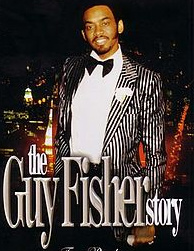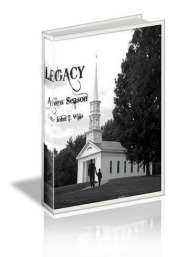
In the early 70s a new breed of gangsters appeared in the hamlet of Harlem who were very different from the legendary figures of old, such as Madam Queen and Bumpy Johnson. We’ve all heard of Frank Lucas whose power derived from cutting out the middle man and Nicky Barnes who came to be known as “Mr. Untouchable” who established the mafia like “Council”.
There have been books and movies about these guys, deserved or not, but their stature has gained near legendary status. But there was one member of the notorious or so-called Council that is seldom mentioned. He is Guy Fisher who is the only BLACK MAN to own an icon of our culture “The Apollo Theater”. That’s right, the world renowned and legendary Apollo Theater throughout its existence has only been owned by one BLACK MAN. I found this amazing!
Fisher saw his narrow escape from prison as a second lease on life after a case that ended in a huge jury and decided to become a legitimate businessman. In early 1978, using monies he’d earned through the heroin trade, Fisher purchased the crumbling Apollo Theater in Harlem. He placed the deed in his half brother's name, and began employing members of the neighborhood to help in its rehabilitation. In May of that year, the new Apollo was unveiled to the community, drawing Motown acts such as Gladys Knight, The Temptations, and other legends.
By 1973, at the age of 25, Fisher made it into Barnes' exclusive underground organization, The Council, which consisted of a seven-member circle of trusted associates. Each of the individual partners in Barnes' syndicate had their own crew of men to distribute heroin to smaller dealers. They would then collect the drug money, and distribute the profits accordingly. Through these dealings, Barnes and Fisher became close friends and confidantes. They also began investing in businesses together, including two, multi-million dollar housing complexes.
A year later, local police stopped Fisher for a routine traffic violation. Fisher was using a false driver's license, and attempted to evade arrest by bribing law enforcement agents with $100,000 he had stashed in his trunk. The officials refused the money, and the incident landed Fisher in prison for nine months. While serving his time, The Council was under close investigation by undercover law enforcement agents for their dealings in the heroin trade.
In 1977, sparked by an article in The New York Times magazine naming Barnes "Mr. Untouchable," then-President Jimmy Carter placed enormous pressure on federal agents to dismantle The Council. That September, Barnes and The Council were placed on trial. Much of the federal law enforcement's undercover surveillance of Barnes and his group occurred while Fisher was imprisoned.
Because of this fact, Fisher's lawyer was able to argue that his client did not participate in the conspiracy mentioned in the federal case. This fact led to a hung jury in Fisher's trial, and he became the only member to escape sentencing. Despite his legitimate success, Fisher resumed the heroin trade as head of The Council with Barnes' help. But after money for Barnes' legal fees started to disappear, the former drug kingpin grew resentful of Fisher's success on the outside. The final straw came when Fisher began an affair with one of Barnes' girlfriends. Feeling betrayed, Barnes broke the code of The Council and turned informant in the early 80s.
In March of 1983, using information Barnes supplied, federal agents finally gathered enough evidence to put Fisher and several of his associates on trial. He was sentenced to life without parole for his role in running a criminal enterprise, and was sent to Marion Federal Prison in Illinois. While in prison, Fisher wrote several novels, earned his bachelor's and master's degrees, and began mentoring inmates. In 2008, he completed his Ph.D. in sociology. He continues to serve his life sentence, despite several appeals, at the United States Penitentiary, Tucson in Arizona..
Despite how the ill gotten gains were obtained I wondered how many people knew that we never owned one of the African American community's most recognizable and distinguished icons. Maybe I’ll just call this a little known fact hidden in black history. And that’s my Thought Provoking Perspective…
FaceBook @ John T. Wills
Like my FaceBook Page





















